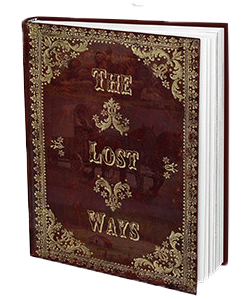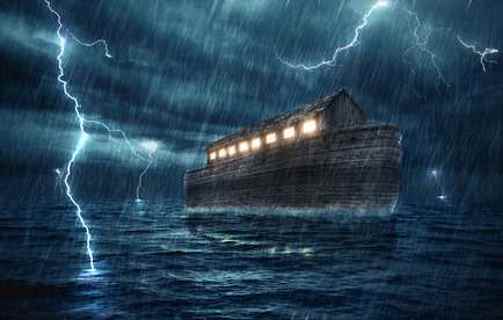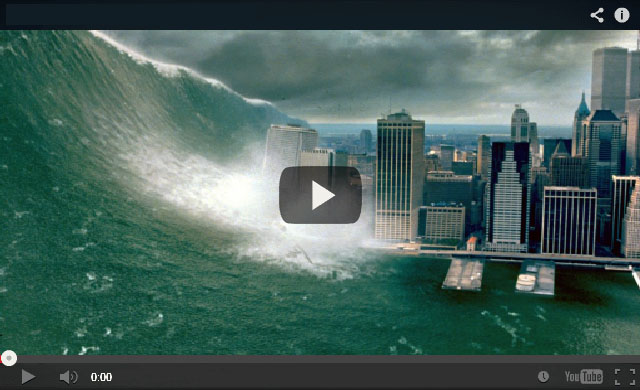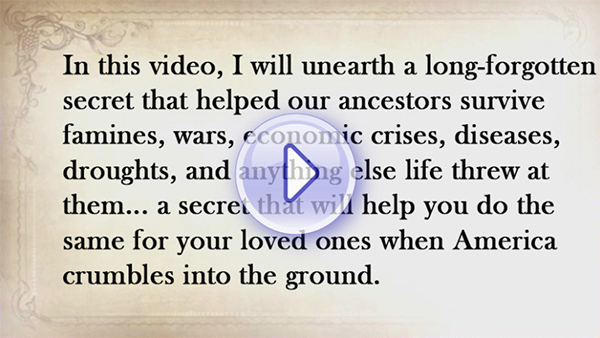Regional Disasters: Are You Insured from Catastrophe? Don’t Make This Common Mistake and Lose Everything
We have seen regional disasters strike repeatedly in recent years and the near future looks like more are heading are way and may get worse. Don’t make this common mistake with your insurance policy and lose everything when catastrophic disaster strikes!
The evening before on late night news the weather reporter shared that some strong winds and rain would greet residents the next morning, and something like that just doesn’t prepare people for what the skies above would have in store the next morning for the city.
And so the day began … A menacing sky and lightning followed by a thunderous clap that shook literally thousands of homes and businesses was the only warning residents of a major U.S. city had that something out of a disaster movie was about to take place, but in real life. Lightning strike after lightning strike. Sudden fires. And the roar — who can forget that roar of thunder that bellowed overhead unlike anything that modern society has put into books to date about a sudden and lengthy lightning storm with winds that seemed almost supernatural.
Extreme Weather Events Getting Worse
Before the next 8 hours would pass in this fictional account, city homes would be ripped apart, skyscrapers would have windows and infrastructure blown out, schools and shopping malls would be leveled and on fire, and the entire landscape would be unrecognizable as the city it once was. 190,000 would lose their lives and the millions of people who lived in the suburbs miles out from where the highest winds and most damaging lightning had struck would now be faced with huge bills and rebuilding — damage to their homes, properties, vehicles, and peace of mind.
Catastrophic Disasters Strike Can Strike Without Warning
Looking back, Louisiana, California, Colorado, Washington, New York, Florida, Texas, Missouri — several states for that matter — Japan, Indonesia, Chili, Spain, China, Pakistan, Australia — I can list possibly a hundred other regions around the globe — the list of catastrophic disasters to strike around the earth has grown to staggering numbers when it comes to lives taken, cost of property damage, and the overall cost to society and individuals who have lost everything.
A lot of people are predicting apocalyptic disaster to strike at some point, but I believe that the odds of apocalyptic disaster are lower in the short term while the odds of the next catastrophic disaster striking your region or a region near you are growing by the year.
DONT “T BE A VICTIM CLIK TO SURVIVE
Are You Ready to Lose Everything?
Without the right insurance policy and coverage, you just might. Does this sound like a television commercial? When I wrote that sentence just now that’s exactly how I perceived it being taken by readers. But this isn’t a television commercial — it’s common sense. We better be ready for a severity in disasters and we better come to the realization that we might lose everything (for some people, losing everything might be a good thing — but I digress.)
How many people have paused to consider how important the right insurance policy and protections are for people?
In fact, where I live a lot of the communities and families in my region may find themselves dealing with larger than normal flash floods (this spring specifically), even in places that have never seen flooding previously. Not at these kind of levels that is.
The conditions seem to be coming together for a disastrous flood season across the region I currently live that could be bigger than Colorado’s recent catastrophe just several months back, and that was called a “1,000 year weather event.” (What does it mean when “1,000 year weather events” start occurring with more frequency? It means we need to be prepared for some truly disastrous years ahead.)
I Don’t Live in a Flood Plain — I Don’t Need Flood Insurance
Studying the earth’s up tick in disasters in recent years, whether you don’t think you need earthquake insurance, flood insurance, wildfire insurance, etc., etc., my recommendation to readers is to get as wide a scale of protection as you possibly can.
(If you live on the West Coast, you might want to ask about Volcano insurance.) What? Yeah, volcano insurance. Mount Rainier. Mount Baker. Mount Hood. Mount Shasta… the West Coast sits on the “ring of fire.” Then of course there are all the earthquake faults reaching into many states and that includes the New Madrid fault line crossing the eastern Mid West states and a major seismic zone that could produce earthquakes devastating several regions.
2016 may not bring a disaster that levels an entire country; it might bring disasters that level several communities though, where you lose your home, your vehicles, and now you’re sleeping in a spare room somewhere and have to start out from scratch. Ouch. But it happens and has happened to many over the years.
If you’re not insured, maybe it’s time to get on the phone with an insurance agent. I don’t want to recommend one company over another company, but the major players in the industry, State Farm, Allstate, Metlife, American Family Insurance, etc., are the ones most likely to pay for damages accordingly, while absorbing a sudden huge demand for insurance claims that may come their way that could bankrupt smaller companies before they could pay you what you’ve been promised.
Click here to learn all about the 3 skills that will help you thrive in any crises situation.
Disaster Insurance for Your Home, Your Vehicle, Your Property
If you go with a small company for insurance protection, they may possibly go bankrupt before they can pay several large claims following a catastrophic disaster. And then, even with your “insurance policy”, now you may have nothing but a piece of paper with empty promises that doesn’t get you very far, leaving you with nothing in the end.
But I Don’t Own A Home — Is There Insurance for Me?
You’d be surprised at the insurance protections that can be offered under something like a renter’s insurance policy; then of course there’s your vehicle to consider. To save money a lot of people may only have “liability” insurance on their vehicles (those that are paid off and free and clear of any liens). How many cars and trucks have been destroyed in disasters over the years? A lot. Earthquakes and floods both are notorious for damaging vehicles beyond repair.
Eagle Scout’s Motto: Be Prepared
We’re not Cub Scouts anymore, when it comes to recognizing and learning how to cope with and survive disaster. The Boy Scouts motto is to be prepared; that is how they tackle survival and we can take that to an “Eagle Scout” level when it comes to considering how insurance can be what helps us bounce back when a major disaster strikes.
My Advice — check out insurance companies as the very next thing you do. As with anything in life, seek God’s direction in prayer. If you have been visiting this site over the months you likely know about my Christian beliefs and where I stand when it comes to being prepared for a disaster to strike. I know the Bible teaches that God can use life’s disasters for our own good in the end, even if it doesn’t seem that way at first.
If we trust in God he can bring us through a time of disaster to a time of understanding and blessing in life, and for some of us that may mean first he separates us from everything that we have made idols of. Large homes. Expensive vehicles. The things that aren’t important in the scheme of things.
That’s when disaster can be a good thing.
If you’re not quite on that page, or you feel God leading you to increase your insurance protections for unexpected disasters to strike, then get those insurance protections in place; whether you’re only 18 years old and visiting this website for the first time or even in your eighties.
Expect an American Refugee Crisis
Talk to insurance companies, find out what they can offer you for protection from disasters (don’t be afraid to mention terrorism; those disasters are coming our way also), and then after it’s all said and done be ready to open your doors to family and friends who may not be insured, who just didn’t recognize the times we are now living in and may find themselves refugees with no where to go except a tent city or sports stadium like the New Orleans Superdome; and if we remember what happened following Hurricane Katrina, none of us probably want our family and friends to end up in a place like the Superdome following a natural disaster.
Because even if you make it out of a catastrophic disaster ok, and you have the right insurance coverage, it’s probable that more than one person you know and care about may not have taken this step to get the right coverage. They may have not only lost everything, but have lost a loved one or suffered severe injuries. Help them in their time of need. It’s the right thing to do. Wouldn’t you want the same care if it’s you or your family that has suffered?
Hindsight is 20-20
That’s an old saying that essentially means … “It’s easy to know the right thing to do after something has happened — it’s too bad we didn’t do anything to be ready.” So, the next time you’re visiting with family, friends, or colleagues, talk to them about disaster insurance protections. Going into 2016, 2017, 2018 — I predict many are going to look back and regret not taking that step.
Better than Insurance
Get right with God. We can lose our lives in a moment. Many have come to terms with God while laying on their death beds — that God loves them and has something eternal for them. But a catastrophic disaster can wipe out lives and not give anyone time for that kind of reflection; that time to find God can vanish in a moment. Let’s face it. The time for reflection is now.
4 Specific Questions to Ask Your Insurance Agent
1. How quickly does your company settle claims?
2. What exclusions does the policy you’re offering me apply to? (Exclusions may be floods, earthquakes, or other kinds of natural events. Be firm about the fact that this is the kind of coverage you are looking for or to add to an existing policy. You may need an insurance “rider” and do expect to pay for an additional premium.)
3. Shop the insurance coverages that you are looking for around with the major players in the insurance industry; you’re likely to find a better deal in the end.
4. If you can’t get the coverage you are looking for — perhaps you live in an area known for flooding, earthquakes, or wildfires and your insurance company doesn’t want to offer coverage for these disasters — then start looking at nonstandard market offers for coverage. Some companies specialize in insurance protection for events like hurricanes, earthquakes, tornadoes, wildfires and the like.
How to Make Insurance Companies Pay Your Claims
If you live in a high risk region for a disaster, you are at an even greater risk! (Though nowadays we are all at a greater risk than just a few years back; too many disasters have occurred in recent years — this has become the norm so expect more). Get your house in order as the old saying goes and understand how to ensure that you will truly get payment for your claims. Books like Andrew Wallingford’s The Claim Game: A Homeowner’s Guide to Avoiding an Insurance Catastrophe and Russel Longcore’s Insurance Claim Secrets Revealed can help ensure that your insurance company doesn’t rip you off in the end and you get hundreds or thousands of dollars more for your settlement.
Government Disaster Insurance Programs
A number of federal and state programs exist for specific types of natural disasters, especially those common to a region. These are offered often because most private insurers may refuse some specific types of coverage. Look into the NFIP (Nation Flood Insurance Program) and research FEMA related insurance offers.
State Insurance Offers for Specific Dangers
The next step is to look into state insurance offers (some states have insurance pools for specific dangers to expect). Some of these dangers go beyond the norm of wildfires, hurricanes, tornadoes, flash floods, and earthquakes. Consider that Ohio, Pennsylvania and other states in that region offer “mine subsidence insurance” where sudden sinkholes and miscellaneous risks are not covered by other insurance companies.
To save yourself time, before you go researching these government programs, be sure to identify any exclusions in your current or new insurance policy. If you can get it all covered by one insurance company, and that company has a history of paying it’s claims quickly, then that is a good insurance company to go with for disaster insurance and being protected.(source)
Survive Attack to Our Power Grid System (Weapon That Can Instantly End Modern Life in America)
Survival MD (Best Post Collapse First Aid Survival Guide Ever)
Backyard Innovator (A Self Sustaining Source Of Fresh Meat,Vegetables And Clean Drinking Water)
Blackout USA (EMP survival and preparedness)
Conquering the coming collapse (Financial advice and preparedness )
Liberty Generator (Build and make your own energy source)
Backyard Liberty (Easy and cheap DIY Aquaponic system to grow your organic and living food bank)
Bullet Proof Home (A Prepper’s Guide in Safeguarding a Home )
Family Self Defense (Best Self Defense Strategies For You And Your Family)
Survive Any Crisis (Best Items To Hoard For A Long Term Crisis)
Survive The End Days (Biggest Cover Up Of Our President)
Drought USA(Discover The Amazing Device That Turns Air Into Water)




